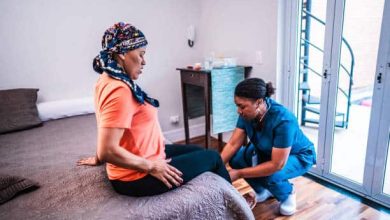Clinical Trials Aren’t Diverse Enough. Here’s Why – BlackDoctor.org


Clinical trials are essential for developing new medical treatments, but historically they have lacked diverse representation. In a recent discussion with the Cobb Institute’s Dr. Christina Stephens, Dr. Priscilla Pemu and Tesheia Harris, chief strategy officer at Yale Center for Clinical Investigation (YCCI) at Yale School of Medicine, shared insights on barriers to participation and strategies to make clinical trials more inclusive, particularly for communities of color and rural areas.
Why Diversity in Clinical Trials Matters
Dr. Pemu, a professor of Clinical Medicine and Associate Dean of Clinical Research at Morehouse School of Medicine emphasized that diversity in clinical trials is crucial because “the only way to really figure out if [a treatment] works is to do a clinical trial.” She noted that different populations may respond differently to treatments, so it’s important to have representation from all groups likely to use a medication or device. Harris added that diversity impacts trust and uptake of new treatments: “One of the primary questions post [COVID] vaccine approval was, were there people like me in that clinical trial?” Having representation allows researchers to say “there were people like me who participated.”
Key Barriers to Participation
The experts outlined several barriers preventing diverse participation. Social determinants of health play a significant role, as Harris noted, “If someone is worried about whether they’re going to lose their house or they don’t have food, then clinical trials participation will be at the top of the list.” Logistical challenges also pose obstacles, with Harris explaining that participation often requires “Time off from work, or they might need even someone to go with them because they’re so ill.” Lack of awareness is another major issue, with Harris stating that “one of the largest barriers to participation is simply just not being asked.” Mistrust based on historical experiences and anxiety about the clinical trial process were also identified as significant barriers.
Strategies to Increase Diverse Participation
To address these challenges, the speakers highlighted several strategies. Community partnerships with churches and local organizations can help build trust and reach diverse populations. Dr. Pemu emphasized the importance of person-centered care, focusing on “communication that takes into consideration the needs, the culture, the aspirations of the individual.” Ensuring diverse research teams and tailoring outreach efforts to different age groups and communities were also recommended. While cautioning that “technology is not a silver bullet,” Harris noted that it can play a role in improving access and engagement. Dr. Pemu also suggested educating people about career opportunities in clinical research to build a more diverse workforce.
The Role of EQBMED
The speakers discussed the Equitable Breakthroughs in Medicine Development (EQBMED) project, which aims to increase diverse participation in clinical trials. Dr. Pemu explained that EQBMED provides tailored support for practices based on their specific needs. The project involves partnerships with faith-based organizations and community leaders, and focuses on sustainability. Harris emphasized the importance of “having the conversations with our funder, pharma, about how important sustainability would be.” EQBMED also works to connect pharmaceutical sponsors with diverse research sites.
Practical Steps for Potential Black Clinical Trial Participants
For those interested in participating in clinical trials, Dr. Pemu offered practical advice. She recommended searching clinicaltrials.gov for relevant studies in one’s area and reaching out to study sites directly with questions. She encouraged discussing logistical concerns like transportation with study staff and exploring decentralized trials that may come to participants. Contacting advocacy organizations for support was also suggested.
The speakers emphasized the critical importance of diverse participation in clinical trials. As Dr. Pemu concluded, “Standing on the side and not participating, I think, guarantees that we continue to see the health inequities that we’re so concerned about.” By addressing barriers and implementing inclusive strategies, the medical community can work towards more equitable and effective health care for all.




